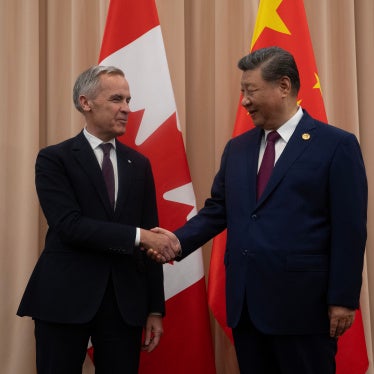Most western observers understand that all Saudi law derives from religious law, the Islamic sharia. What they often fail to grasp is that sharia is not codified, but subject to individual interpretation by clerics in each case.
What does this mean in practice? Sharia remains the only applicable law both for criminal and personal status cases in the two courts of first instance, the summary courts and the general courts – the latter deal with serious crime and civil disputes over larger sums. Without codification or a system of precedence, individual judges are free to interpret the Qur'an and prophetic traditions – the two agreed sources of sharia – as they see fit, within general Islamic legal doctrines. With the exception of half a dozen defined crimes, Saudi judges create a crime to fit the facts rather than assessing whether the facts fit a defined crime.
The arbitrary nature of Saudi justice extends to civil disputes. Like Europe in the middle ages, Saudi Arabia maintains a mixed civil and criminal system under which people other than the prosecutor can demand criminal sanction, such as imprisonment for debt.
Saudi interpretations of sharia favour particular legal doctrines, such as criminalising acts for the protection of the common good, al-masalih al-mursala, or prohibiting practices to ward off corruption, dir' al-fasad. This argument is used in particular against women's rights, including driving, which, according to this doctrine, if granted, would set women on a slippery slope toward immorality.
Saudi judges frequently convict people who engaged in peaceful advocacy on the vague charge of going beyond the realm of obedience, al-khuruj 'ala ta'at wali al-amr. For example, Riyadh's summary court in late July sentenced five people to a year in prison for a small peaceful protest calling for the release or trial of their relatives who had been detained for years without charge.
In another case billed as a terrorism trial, a special court is trying over a dozen people known for their political reform efforts, including former judges and lawyers, on charges of "rescinding the hand of obedience" to the ruler and cancelling their oath of loyalty to him. Mikhlif al-Shammarihas been in jail since June 2010 awaiting trial in a state security court over his articles criticising an intolerant religious establishment and corrupt officials. The charge is "annoying others".
Justice minister Muhammad al-'Isa has replaced old religious hardliners with staff trained in statutory laws and methods, but internal accountability remains a significant gap in Saudi's justice system. There are some laws on criminal procedure, duties and rights of lawyers and their clients, but judges repeatedly ignore them. A Riyadh judge, for instance, prevented the lawyer for a Syrian man he sentenced to death in December 2008 on drug charges from attending trial sessions or meeting with his client.
The country's history has afforded men of religion strong influence over government policy. Clerics legitimise the ruler from the al-Saud family - King Abdullah, whose official title is Custodian of the Two Holy Mosques, Islam's holiest sites in Mecca and Medina – and traditionally preside over all matters of law, education, mosque and missionary activities, as well as a separate religious police force. It is the ruler's obligation to care for the common good, and his subjects owe him unquestioning obedience in return.
Two religious bodies embody official religious doctrine: the royally appointed council of senior religious scholars and the office of the grand mufti. It would be hard for state policy to contradict public interpretations by these bodies, or for a judge to countervail their views. The scholars' council recently approved allowing women to vote in the country's local elections and become members of the proto-parliament, but it has also previously decreed that a woman's place is in the home. In March, it categorically prohibited public protests.
King Abdullah has tweaked the judicial system slightly. He still appoints all judges, but has ordered a restructuring of the judiciary, streamlining and marginally enhancing its independence. New appeals courts in each of the 13 provinces have replaced the two cassation courts for the entire country, and a new supreme court has gained adjudication powers from the supreme judicial council, which now focuses on administering the judiciary. Plans to transform executive tribunals for commercial, traffic, media, and labour disputes into independent courts have so far come to nothing.
Saudi Arabia needs to allow its judges more independence. It must also stop them from inventing crimes – something that could be achieved by codifying laws and establishing narrow definitions of crimes that comply with international human rights standards. Saudi prosecutors and judges should also strengthen procedural safeguards to ensure fair trials, quash convictions resulting from unfair trials and abolish imprisonment for debt. This is prohibited under international law, including the Arab human rights charter, which Saudi Arabia ratified in April 2009. Tariq al-Mashharawi, a Jordanian, has been in prison for over four years after a court ordered him to pay a debt to a princess, which he denies he owes. His case is an example of the injustices that arise from Saudi's mixed criminal and civil system.
Christoph Wilcke is a senior Middle East researcher at Human Rights Watch






